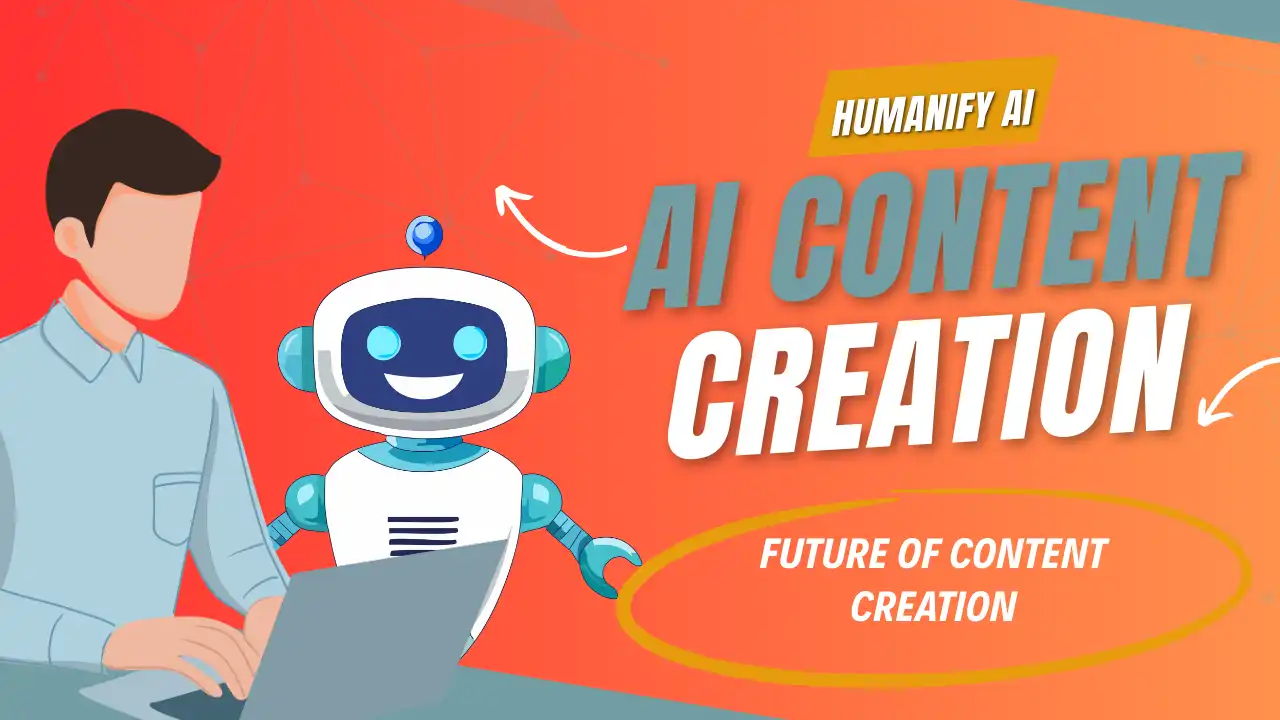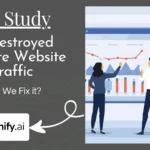AI has revolutionized the process of creation, optimization and distribution of content. AI-powered tools will make digital content faster, more efficient and highly personalized in the future in 2025. It may be writing a blog, making a video, or any other content to share on social media, yet AI is making creativity and productivity more active than ever.
In this blog, we will discuss how Artificial Intelligence is changing the content creation process in 2025.
Epic Rise of Artificial Intelligence in Content Creation
Previously, high-quality content was considered to need a human touch either in writing ad copy, blog posts or catchy social media posts. However, as AI tools continue to evolve, nowadays, much of this process can be automated by businesses, which saves them a lot of time and effort. Software such as GPT-3 and GPT-4 OpenAI, Jasper, and Copys AI can now be used to create content that can often be difficult to distinguish as written by a human author.
The increasing AI responsibilities of content creation are enabling businesses to keep the content stream steady, address strict deadlines, and expand their activities without needing to recruit more individuals.
Advantages of AI in Content Creation
i. Enhanced Creativity through AI Assistance
AI is a creative collaborator that would offer new ideas, prompts, and angles. It assists content creators to look at new angles, breaking their creative boundaries and motivating them to think creatively.
ii. Time-Saving Content Repurposing
AI enables content to be reused effortlessly in a variety of forms- converting a blog article into social media posts or a video script- saves time and increases the reach of the content.
iii. AI as a Collaboration Partner
The AI can manage such tasks as drafts and research, allowing writers to get more creative and strategic. It facilitates the creation process of the content without stealing the creative control.
iv. Automating Content Refinement
AI assists in editing the content and recommends ways to improve it in grammar, style, and tone so that the writing is refined and professional but the writer’s voice remains.
v. AI-Powered Research and Idea Generation
AI can speed up research, scan the data to find patterns and insights and leave the writers to create more in-depth content, instead of wasting time on data collection.
Challenges of Excessive AI Use in Content Creation
Although AI has many benefits, it also has some negative impacts. With the future of content creation moving increasingly towards AI-based solutions as we head into 2025, a number of challenges can be anticipated.
i. Loss of Authenticity
The excessive use of AI may lead to the creation of shallow and generic content that has no emotional appeal. Although AI can imitate human writing, it is unable to reproduce the qualities of the personal storytelling or the characteristic voice that appeals to audiences and poses a risk to loss of authenticity.
ii. Over-saturation of Generic Content
Since AI can produce sensitive content at high speed and volume, it can easily overwhelm the web with repetitive and formulaic content. Over-saturation may complicate both the process of brand differentiation and the search for really unique and useful content by the readers.
iii. SEO Manipulation and Ethical Concerns
The use of AI in SEO can be abused by stuffing keywords or just writing content that may rank better instead of being valuable to the readers. There can be penalties in applying AI in SEO because search engines are becoming more adept at recognizing poor-quality and manipulative information.
iv. Job Displacement
Uncontrollable intensity of AI application in the generation of content can result in job displacement in the writing and creative sectors. Although AI is capable of assisting humans, there is a danger that the focus on automation by businesses will decrease the entry-level writers or freelancers.
v. Quality Control Risks
AI is not perfect and can commit errors or overlook some important facts. When used improperly or not carefully tracked, it may result in content that is inaccurate, inconsistent or substandard and that may degrade the reliability and quality assurance of a brand.
Future of Content Creation with AI
The year 2025 has already arrived, and AI will continue to develop, as will its contribution to content creation. Technology is developing at an accelerated pace and natural language processing and machine learning advancements are turning the technology into something more complex each day. Artificial intelligence will be able to develop content that is more personalized and context-sensitive in the future, providing a really customized experience to the user.
Yet despite these innovations, human creativity and emotion intelligence will probably not be replaced in content creation. Even as the majority of the repetitive or data-driven content is created by AI, the necessity to have authentic content, creative content, and highly personal content will keep the human writer relevant in the sector.
Finding the right balance between taking advantage of the possibilities offered by AI and maintaining the originality and originality of human-made content will become the key to success in the future. As the AI tools are being developed, the content creators must be flexible and adapt to the advantages of technology and minimize the potential drawbacks of technology.
In Conclusion – AI Content Creation
In 2025, AI will revolutionize content creation and grant creators the power to utilize it to simplify their production process, create high-quality output, and reach a wide audience. AI is changing any industry, whether it is ramping up manufacturing, or content personalization at scale.
The smart technologies are able to deal with any kind of work including writing articles, creating creative images and graphics, and enhancing search optimization; therefore, authors, book publishers, and content developers can now enjoy all the advantages of smart technologies.
FAQs – AI Content Creation
Q1. What will happen to AI in the writing industry in 2025?
AI will enhance efficiency, automate the content generation process, and give personalised writing suggestions.
Q2. Will AI replace human content creators?
It will not be a substitute to human creators, but an assistant.
Q3. How do AI tools help with SEO?
The artificial intelligence applications compare the patterns, suggest the keywords, and narrow down the content to get high in the search results.
Q4. What should content creators do to stay authentic using AI?
Making AI-generated content sound and speak in your own style is a way creators can stay authentic.
Q5. What are the most practical AI tools when it comes to creative content writing?
ChatGPT has emerged as a content leader in creative content writing, where it offers an engaging piece of text, Jasper is creating high-converting marketing copy, and Copys.ai is brainstorming and writing blog posts. These applications help authors overcome writer’s block, work efficiently and write powerful content that fulfills the requirements of different audiences and niches.
Read More : Does Google Penalize AI Content? What You Need to Know in 2025



